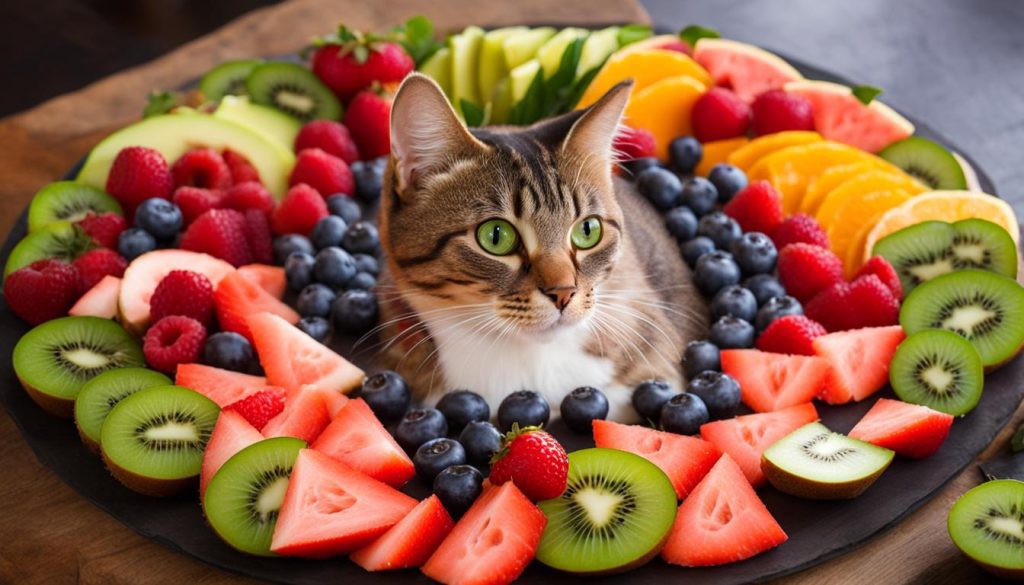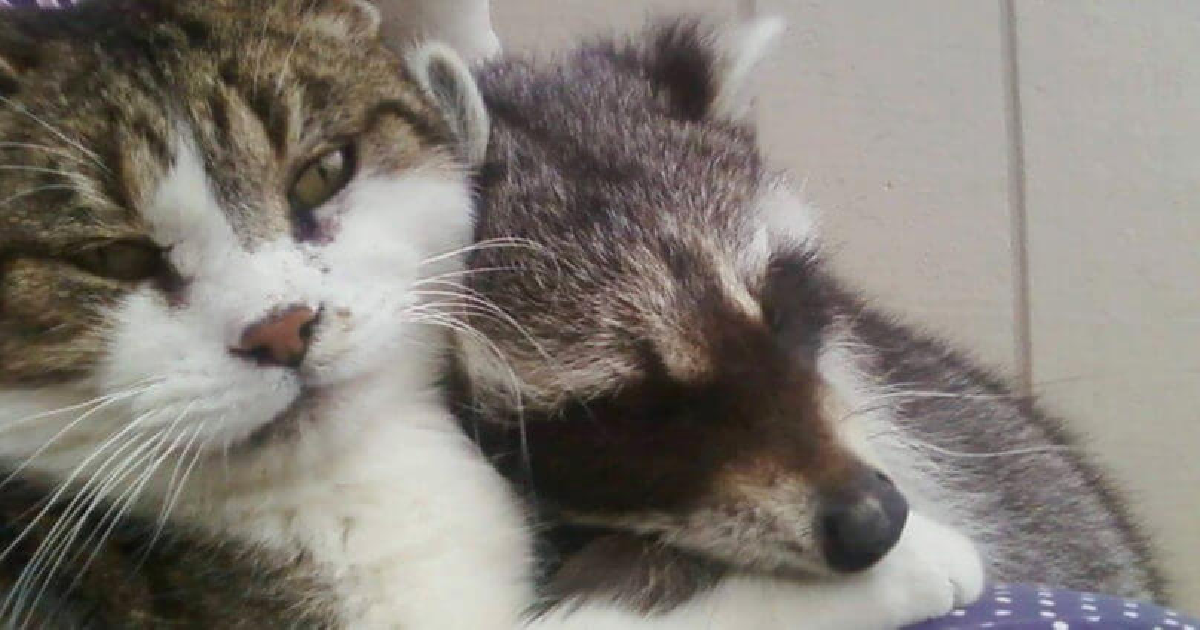As a cat owner, you may have wondered if it’s safe to share your favorite fruit, bananas, with your feline friend. While cats are known for their unique dietary needs, it’s important to understand the potential risks and benefits before introducing any new food into their diet.
Cats are often indifferent to sweet foods like bananas, and their nutritional requirements are best met through specially-formulated cat food. However, in moderation, bananas can be safely offered as an occasional treat for your furry companion.
Can Cats Eat Bananas? Yes, a small amount won’t hurt.
- Cats can eat bananas in moderation, but they are not a necessary part of their diet.
- Feeding cats small quantities of bananas can provide some health benefits.
- Remove the banana peel and cut the fruit into bite-sized pieces before offering it to your cat.
- Monitor your cat for any unusual reactions and consult with your veterinarian before introducing new foods.
- Remember that cats have specific nutritional needs that are usually met with specially-formulated cat food.
Are Bananas Good for Cats?
When it comes to feeding bananas to cats, the question arises – are bananas good for them? While bananas are nutrient-rich and can be a healthy snack for humans, they may not provide the same benefits for our feline friends. Cats have specific nutritional needs that are usually met with specially-formulated cat food. So, while bananas are safe for cats to consume in moderation, they are not a necessary part of their diet.
Why Cats and Bananas May Not Mix
Cats are often indifferent to sweet foods like bananas, and the high sugar content can have a negative effect on their health if not given in controlled portions. Feeding cats too many sugary carbs, like bananas, can lead to digestive issues and may be problematic for cats with health issues such as diabetes, heart disease, liver problems, or obesity. Furthermore, cats are obligate carnivores, and their digestive systems are not well-suited for handling plant food sources.
Feeding Bananas to Cats Safely
While bananas may not be the ideal choice for cats’ nutrition, if you want to offer them as an occasional treat, there are some guidelines to follow. Remove the banana peel as it cannot be digested by cats, and cut the banana into bite-sized portions. Start with a small piece and monitor your cat for any unusual reactions. It’s also crucial to consult with your veterinarian before introducing any new foods to your cat’s diet to ensure it is safe and appropriate for their specific health needs.
While cats can eat bananas in moderation, it’s important to remember that they are not a necessary part of their diet. Cats have specific nutritional needs that are best fulfilled through specially-formulated cat food. If you choose to offer your cat bananas as a treat, do so with caution, ensuring portion control and monitoring for any adverse reactions. Always prioritize your cat’s overall health and consult with your veterinarian for personalized dietary recommendations.
Benefits of Feeding Cats Bananas
Feeding cats small quantities of bananas as an occasional treat can provide some health benefits. Bananas are high in potassium, which supports heart and kidney function. They are also a good source of soluble fiber, vitamin C, and vitamin B6. Bananas provide glucose, which cats need for energy. They are a nontoxic and all-natural treat for cats. While bananas are safe for cats and can provide some health benefits, they should be given in moderation and not as a regular part of their diet.
The Health Benefits of Bananas for Cats
When given in small amounts, bananas can be a beneficial addition to a cat’s diet. The potassium content in bananas helps maintain normal heart and kidney function in cats, while the soluble fiber aids in digestion. Bananas also contain vitamin C and vitamin B6, which support the immune system and promote overall health. Additionally, the natural sugars in bananas provide cats with a source of glucose, which is essential for energy production. All in all, bananas offer a safe and natural treat option for cats.
Moderation is Key
While bananas can be beneficial for cats, it’s important to remember that they should be given in moderation. Cats are obligate carnivores and require a diet primarily consisting of animal protein. Too many carbohydrates, including those found in bananas, can lead to digestive issues for cats. Additionally, cats with certain health conditions, such as diabetes, heart disease, liver problems, or obesity, may not tolerate the sugars in bananas well. Always consult with your veterinarian before introducing any new foods to your cat’s diet.
A Treat, Not a Staple
Bananas should be viewed as an occasional treat for cats rather than a regular part of their diet. While cats may enjoy the taste of bananas, their nutritional needs are best met through a balanced diet of specially-formulated cat food. Cats require specific nutrients that are tailored to their unique physiology, and commercial cat food is designed to provide these essential components. Feeding cats small amounts of bananas as a special treat can be a way to add variety to their diet, but it should not replace their regular meals.
Downsides of Feeding Cats Bananas
While bananas are generally safe for cats to eat, there are some downsides to consider. Cats are obligate carnivores, which means their digestive system is designed to primarily process meat. Feeding cats too many sugary carbohydrates, like bananas, can lead to digestive issues and may be problematic for cats with certain health conditions such as diabetes, heart disease, liver problems, or obesity.
Additionally, cats are often indifferent to sweet foods like bananas. Their taste buds are not wired to detect sweetness in the same way humans do. So even if you offer your cat a banana as a treat, they may not find it appealing or may not enjoy it as much as other types of food.
The Importance of Moderation
While bananas are not toxic to cats, it’s essential to remember that they should only be given in moderation. The high sugar content of bananas can have a negative effect on a cat’s health if consumed in large quantities or on a regular basis. It’s always best to consult with your veterinarian before introducing any new foods to your cat’s diet, including bananas, especially if your cat has any pre-existing health conditions or dietary restrictions.
Overall, while bananas can be safely offered to cats as an occasional treat, they are not a necessary part of their diet. Cats have specific nutritional needs that are best met through a balanced and specially-formulated cat food. Feeding cats a variety of protein-rich cat food, along with appropriate treats approved by a veterinarian, will help ensure their overall health and well-being.
How to Feed Bananas to Cats
If you’re considering giving bananas to your cat as a special treat, it’s important to follow a few guidelines to ensure their safety and enjoyment. Here are some steps to feed bananas to your feline friend:
1. Remove the peel: Cats cannot digest the banana peel, so it’s crucial to remove it before offering the fruit to your cat.
2. Cut into bite-sized pieces: Cats have small mouths, so it’s best to cut the banana into small, manageable pieces. This makes it easier for them to chew and swallow.
3. Start with small portions: Introduce bananas to your cat’s diet gradually. Begin with a small piece and observe for any unusual reactions or digestive issues.
4. Consult with your veterinarian: Before adding any new food to your cat’s diet, including bananas, it’s essential to consult with your veterinarian. They can provide personalized advice based on your cat’s specific health needs.
By following these simple steps, you can safely introduce bananas as an occasional treat for your cat. Remember to prioritize your cat’s well-being and monitor their response to ensure they enjoy the experience.
Can Kittens Eat Bananas?
When it comes to kittens and their diet, it’s essential to provide them with high-quality kitten food that meets their specific nutritional needs. Kittens require a balanced diet rich in protein, calcium, and magnesium to support their growth and development. Treats, like bananas, should only be introduced after a kitten reaches 1 year old.
Kittens have sensitive digestive systems, and it’s important not to let them develop a liking for overly sweet foods. Bananas, although not toxic to kittens, can have a high sugar content that may not be suitable for their health, especially if they have any underlying health issues.
Therefore, while kittens can technically eat bananas, it is generally not recommended to include them in their regular diet. Instead, focus on providing them with age-appropriate, nutritionally balanced kitten food recommended by your veterinarian.
Other Fruits Cats Can Eat
While bananas can be a safe occasional treat for cats, there are also other fruits that cats can enjoy. Adding variety to your cat’s diet can provide different flavors and nutrients. Here are some fruits that are generally safe for cats to eat:
Apples:
Apples are a good source of fiber and vitamin C. Remove the seeds and core before giving a small slice to your cat. Make sure to wash the apple thoroughly to remove any pesticides.
Pears:
Pears are low in calories and high in fiber. Remove the seeds and give a small slice to your cat. It’s best to offer ripe pears that are soft and easy to chew.
Berries:
Blueberries, raspberries, and strawberries are packed with antioxidants and can be a healthy treat for cats. Offer a few berries as a snack, making sure they are washed and cut into small pieces.

Conclusion
While cats can eat bananas in moderation, they are not a necessary part of their diet. Cats have specific nutritional needs that are usually met with specially-formulated cat food. Feeding cats small quantities of bananas as an occasional treat can be safe and provide some health benefits, but it’s important to monitor for any unusual reactions and consult with your veterinarian before introducing any new foods to your cat’s diet.
Cats are often indifferent to sweet foods like bananas, and the high sugar content can have a negative effect on their health without portion control and moderation. It is not necessary to add fruits to a cat’s diet, but if you want to offer bananas as a treat, remove the peel, cut the banana into bite-sized pieces, and start with a small tasting while monitoring for any unusual reactions.
While bananas are safe for cats and can provide some health benefits, they should be given in moderation and not as a regular part of their diet. Cats are obligate carnivores, and their digestive system is not well-suited for handling plant food sources. Feeding cats too many sugary carbs, like bananas, can lead to digestive issues and may be problematic for cats with health issues such as diabetes, heart disease, liver problems, or obesity. Cats are not always tolerant of new foods in their diet and may not enjoy sweet treats like bananas.
FAQ
Can cats eat bananas?
Yes, cats can eat bananas in moderation as an occasional treat.
Are bananas good for cats?
Bananas are nutrient-rich, but cats have better sources of nutrients in specially-formulated cat food.
What are the benefits of feeding cats bananas?
Bananas are high in potassium, fiber, vitamin C, and vitamin B6, which can support heart and kidney function and provide energy for cats.
What are the downsides of feeding cats bananas?
Feeding cats too many sugary carbs, like bananas, can lead to digestive issues and may be problematic for cats with certain health conditions. Cats are also often indifferent to sweet foods like bananas.
How should I feed bananas to my cat?
Remove the banana peel, cut the banana into bite-sized pieces, and start with a small tasting while monitoring for any unusual reactions. It’s important to consult with your veterinarian before introducing any new foods to your cat’s diet.
Can kittens eat bananas?
Kittens should only be given high-quality kitten food with plenty of nutrients. Treats, like bananas, can be introduced after a kitten reaches 1 year old.
What other fruits can cats eat?
Cats can eat a variety of fruits, including apples, pears, berries, watermelon, mangos, pineapples, apricots, honeydew, and nectarines. However, always consult with your veterinarian before adding any new fruits to your cat’s diet.
Is it necessary for cats to eat bananas?
No, it is not necessary for cats to eat bananas. Specially-formulated cat food usually meets their nutritional needs.
Can cats eat other sweet treats?
Cats are not always tolerant of new foods in their diet and may not enjoy sweet treats like bananas. It’s best to monitor their reactions and consult with your veterinarian.






